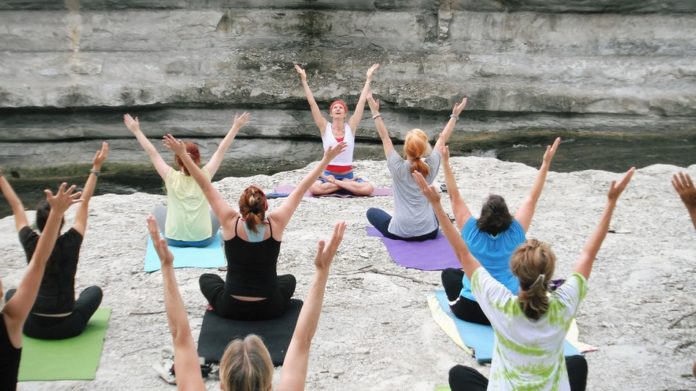A little bit of gratitude can do wonders for your health

Dozens of studies have found that gratitude can improve well-being, and can even help people curb depression and anxiety, improve cholesterol and get better sleep, said Robert Emmons, a psychologist at the University of California, Davis, and author of Gratitude Works! A 21-Day Program for Creating Emotional Prosperity (Jossey-Bass, 2013).
“Grateful people engage in more exercise, have better dietary behaviors, are less likely to smoke and abuse alcohol and have higher rates of medication adherence,” Emmons wrote in an email. “Gratitude is good medicine.”
Health benefits
Gratitude is an attitude of thankfulness about the good things in life, and it requires the recognition that those things are a gift from outside the self. Saying “thank you” to someone can make the giver feel good. But over the past several years, an increasing body of evidence suggests that expressing gratitude is good for people in more concrete ways, as well.
Many studies have shown that grateful people tend to be happier overall, said Phillip Watkins, a psychologist at Eastern Washington University in Cheney.
“When you look at personality traits or virtues that correlate most strongly with people’s happiness, gratitude is always up there within the top three, if not the top one,” Watkins told Live Science.
Other studies have found that gratitude improves sleep quality and duration. For instance, a 2013 study published in the Journal of Psychosomatic Research found that people who showed more gratitude fell asleep more easily — likely in part because they were consumed with fewer negative thoughts, and more pleasant thoughts as they drifted off at night. (Sleep deprivation can also, not surprisingly, make people cranky and ungrateful.)
People who report more gratitude also show better cholesterol levels and blood pressure, and have a lower lifetime risk of depression and anxiety, Emmons said.
Other-focus
It’s possible that at least some people are grateful simply because they have better health in the first place. But in several studies, people who were asked to write down three good things that happened each day over the course of a week reported feeling happier. People who wrote a thank-you note to someone positive in their lives got a happiness boost as well.
A key to the effect, however, is that it must be other-focused. In a paper published in June 2014 in the Journal of Positive Psychology, Watkins and his colleagues showed that keeping a diary of three blessings worked much better to boost happiness than recalling three times when a person felt a sense of pride in his or her own accomplishments.
And unlike most treatments, which typically fade over time, gratitude is the gift that keeps on giving.
“People’s happiness kept going up after the treatment phase, and if you’re familiar with clinical psychology studies, this never happens,” Watkins said. “What we believe is happening is that it makes people look for the good in their life more, so it trains their attention to more good things.”
Grumpy? Focus outwards
Of course, not all people are Pollyannas with a natural tendency to see the glass as half full. But even the grumpiest of Scrooges can still reap the benefits of gratitude, Emmons said.
Gratitude is a practice, or a discipline, so even if it doesn’t come naturally, people can develop the skill, Emmons said.
“It is helpful to remember that it’s not really about feelings,” Emmons said. “Gratitude is a choice. We can choose to be grateful even when our emotions are steeped in hurt and resentment, or we would prefer our current life circumstances to be different.”
A simple trick is to keep a daily diary of things you are grateful for, or list three good things you notice during the day. Buying someone a gift or giving a charitable donation can also boost happiness in a way that splurging on yourself doesn’t, according to a 2008 study published in the journal Science. Moreover, simply saying “thank you” to a spouse can create a virtuous cycle of gratitude, where each person feels more appreciated and happy, according to a 2012 study published in the Journal of Personal and Social Psychology.
Another simple technique is to focus on all the instances in daily life when you depend on someone else for things you could never do yourself, Emmons said.
“This shift in focus from the inside (us) to the outside (others) is the key to reaping the benefits of gratitude. It’s not all about us,” Emmons said.
- Surgery App Keeps Families Updated in Real Time (Op-Ed)
- WWI Shell Shock: The Myths and Realities
- Autopsies from Space: Who Killed the Sea Lions?
- How to Survive a 3,000-Calorie Thanksgiving Meal
This article originally published at LiveScience here

